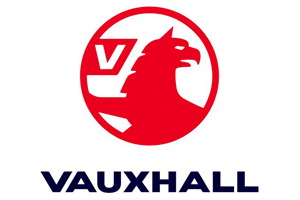


This edition of the Vauxhall-Opel Calibra 2.0i 16v Turbo is the 6 speed / Manual version and was first brought out in 2002. This was at around the same time as the introduction of the 2002 Ferrari Enzo 6.0 V12 and the 2002 Pagani Zonda C12 S 7.3.This particular Vauxhall-Opel Calibra has a 1998cc Naturally Aspirated Petrol powerplant with 4 cylinders in a St formation.
The Calibra shares its Petrol St4 engine configuration with the likes of the 2019 Ariel Atom 4 2.0 Turbo and the 2013 Caterham 7 620 R 2.0 L Supercharged. If you're looking for other fast cars which share the Calibra's All Wheel Drive, Coupe combination then how about the or the .
Weighing in at 1405 kgs (3097 lbs) this makes the Vauxhall-Opel Calibra 2.0i 16v Turbo in the same weight category as the 2022 Lotus Emira First Edition 3.5 V6 Supercharged Auto or the give or take 50kg.
In terms of power the 1998cc 16V St4 engine produces 201 bhp (149 kW) @ 5600 rpm similar to the 2020 Audi TT S Turbo 50 TFSI (225 bhp) or the 2020 Audi A1 Sportback 40 TFSI S tronic S line (197 bhp).
The Naturally Aspirated St4 throws out 207 lb-ft (280.6 Nm) @ 2400 rpm placing it with cars of similar torque performance figures such as the 2020 Abarth 695 70th Anniversario 1.4 Turbo (184 lb-ft) or the 2020 Audi A1 A1 Sportback 35 TFSI S tronic S line (184 lb-ft).
If one combines the weight with power or torque performance for the Vauxhall-Opel Calibra you can get a better idea of it's real world performance.
![Volkswagen-VW Arteon 2.0T AWD - [2022] image Volkswagen-VW Arteon 2.0T AWD - [2022] image](/editionimages/2314.jpg)
The 2022 Volkswagen-VW Arteon 2.0T AWD (168.0 bhp per ton) has similar Bhp Per Ton stats as the Vauxhall-Opel Calibra.
The Vauxhall-Opel Calibra has a Power to weight ratio of 143.0 bhp per ton and 147.3 lb-ft per ton. Bhp Per Ton figures of the 2002 Calibra competing with the 2022 Volkswagen-VW Arteon 2.0T AWD (168.0 bhp per ton) or the 1981 Mitsubishi Lancer 2000 Turbo 2nd Gen (168.0 bhp per ton).
If you agree with the late great Carroll Shelby then arguably an even better indicator of potential performance, Torque. Use weight as well and you end up with - Torque per ton, with the Vauxhall-Opel Calibra generating around 147.3 lb-ft per ton. If you're curious as to what other cars have as much torque to weight then look no further than the 1991 Audi V8 4.2 V8 Quattro (172.3 lb-ft per ton) or the 1951 Ferrari 212 Export (172.2 lb-ft per ton).
With a 0-60mph time of 5.80 secs or a 0-100km/h (0-62mph) of 6.0 secs, this made the Vauxhall-Opel Calibra 2.0i 16v Turbo as fast as the 2021 KIA K5 GT 2.5 Turbo (5.80 secs) the 2020 Toyota Camry TRD 3.5 V6 (5.80 secs) the 2017 Seat Leon ST Cupra 300 DSG (5.80 secs) the or the 2017 Renault Megane RS 1.8 Turbo 280 (5.80 secs). This Vauxhall-Opel Calibra 2.0i 16v Turbo is also faster than the 2019 Ford Focus ST 2.3 EcoBoost Automatic (5.90 secs) the 2019 Ford Focus ST 2.3 EcoBoost Automatic Wagon (5.90 secs) the 2017 Hyundai i30 N Performance 2.0 Turbo (5.90 secs) the and the 2015 Seat Leon ST Cupra 280 (5.90 secs).
When talking about the performance of the Vauxhall-Opel Calibra on the drag strip it can reach a quarter mile in an estimated 15.07 secs @ 90.8 mph. Similar performance down the quarter mile can be found with the the 2006 Nissan 350Z Roadster 300bhp (15.00 secs), the 1998 Nissan 300ZX Version S Twin Turbo (15.00 secs), and the 1990 Toyota Supra 2.5 Twin Turbo (15.00 secs).
Modern performance cars are often artificially restricted to 155mph. The 2002 version of the Vauxhall-Opel Calibra 2.0i 16v Turbo has a maximum speed of 152mph.
If maxing out your car on the AutoBahn is your thing and you're wondering what's faster than the 2002 Vauxhall-Opel Calibra 2.0i 16v Turbo then how about the 2020 Ford Mustang Bullitt 5.0 V8 (163 mph), the 2019 Renault Megane RS 1.8 Turbo 300 Trophy-R (163 mph), or the 1996 Lotus Esprit 2.0 Turbo GT3 (163 mph).










Aston-Martin Vantage V8 N400
Engine: Naturally Aspirated Petrol | 4281cc 32v V8
Top Speed: 177 mph
0-60mph: 4.90 seconds

Vauxhall-Opel Manta GT/E 1.9 8v
Engine: Naturally Aspirated Petrol | 1897cc 8v St4
Top Speed: 191.5 kph
0-100kph: 11.0 seconds



















